Ron Simmons, former head of Us Helping Us, dies at age 70
Simmons remembered for his fierce advocacy, activist spirit, and dedication to improving the lives of black gay men

Ron Simmons, the educator, writer, and advocate who served as the executive director of Us Helping Us, People Into Living, Inc., passed away on Thursday night at George Washington University Hospital from complications related to an ongoing battle with prostate cancer. He was 70.
A longtime advocate for people living with HIV, Simmons, a member of the LGBTQ community, dedicated the bulk of his life’s work to UHU, the health and wellness organization serving black LGBTQ people located in D.C.’s Petworth neighborhood. He was the organization’s executive director for 24 years, from 1992 to 2016, overseeing its expansion into various support groups that emphasized mental health as much as physical condition.
Simmons, who tested positive for HIV in 1990, refused to take AZT, concerned about the drug’s toxic effects. It was his desire to seek out holistic treatments that first drew him to one of Us Helping Us’ support groups around his birthday, on March 2 of that year. Simmons believed that by adopting the group’s approach to holistic health, he was able to prolong his life. In 2003, he began taking antiretrovirals, which had proven more effective than earlier medications in treating HIV.
“The groups were at Rainey Cheeks’ house, and would go for three months. Each week we received something different about holistic health,” Simmons told Metro Weekly in 2016. “Body, mind and spirit. Body, about eternal cleansing, about nutrition, vitamins, minerals, herbs, the importance of water. The mind, stress management, mind/body dialog, how to meditate, how to visualize.”
Under Simmons’ leadership, Us Helping Us became the first black gay AIDS organization in the United States to purchase and renovate a building for use as a service facility and as its headquarters. The organization received the National HIV/AIDS Diversity Award from Kaiser Permanente and the Leadership Award from the then-National Gay and Lesbian Task Force.
In 1998, Simmons developed an innovative outreach program for heterosexual-identifying men who have sex with men, known as the Down Low Help Line. That same year, he began writing radio commercials targeting black gay men with the intent of providing education about available HIV prevention and resources. He is credited with strengthening Us Helping Us’ financial position and seeking out grant money to expand the organization’s programming.
Born in Brooklyn, New York, in 1950, the second of four children of a garment worker and a factory worker, Simmons grew up in public housing in the Brownsville neighborhood, eventually becoming one of several children “bussed” to the suburbs as part of integration efforts. Upon graduating from high school in 1968, he enrolled in the State University of New York at Albany, where he earned a bachelor’s degree in Afro-American studies.
During his time at the university, he was first exposed to political activism, both in terms of the gay liberation movement and the anti-war movement at the height of the Vietnam War, even participating in the successful student strike of 1970. He was involved with the campus newspaper and the Gay Student Alliance, eventually becoming the first black editor-in-chief of the school’s yearbook, and — in a controversial move that earned him condemnation from politicians in the New York State Senate — included sections dedicated to the anti-war and gay liberation movements in the yearbook’s 1972 edition.
In his professional career, Simmons served as a writer and photographer for the board of education for Newark, N.J., as well as a freelance music reviewer. He eventually went back to school and received two Master’s degrees, one in African history and the other in educational communications.
Simmons later moved to Washington, D.C. to pursue a doctorate from Howard University, which he completed in 1987. During that time, he taught at the Howard University School of Communications and volunteered as a photographer for Black Light magazine, the first black gay magazine in the nation. After being informed in 1992 that his contract would not be renewed, Simmons was consoled by Us Helping Us founder, Kwabena Rainey Cheeks.
“I really got to know Ron in 1991, when he came to one of our support groups. When the group finished, I told Ron, ‘Listen, I’m about to open a church,'” recalls Cheeks, founder of Inner Light Ministries. “Would you take over Us Helping Us? And Ron said to me, ‘You don’t have enough money. Do you know I’m a professor at Howard University?’ And I said, ‘But you’re on break right now.'”
Despite Simmons’ initial refusal, Cheeks told him he’d “pray on it,” and after Simmons’ contract wasn’t renewed, Cheeks said, “Now you’ve got time to run Us Helping Us.”

“Back then, we were on a true shoestring budget,” says Cheeks. “Almost everything was done through volunteers. Ron and I laughed about how we did our first grants. We thought we were ‘big time’ when we had $8,000 in the bank. But Ron took it from where it was to basically where it is today. And I am grateful for him willing to say yes. He’d joke with me over the years, ‘Don’t pray for anything else.'”
Cheeks adds that “Ron understood leadership, but he also had a passion for helping black gay men get their feet on the ground. That was part of the mission of Us Helping Us, to empower you, so that you could make good decisions about your own life. Ron was a true activist, who was already involved with the gay movement before that, so he took all those skills [honed as an activist] into Us Helping Us and developed some really unique programs. I give him a lot of credit for helping the young men find their way.
“When he told me he was going to retire from Us Helping Us, I told him, ‘Well, you’ve made your mark, that’s for sure.'”
A. Cornelius Baker, the former executive director of the Whitman-Walker, recalled being at loggerheads with Simmons over their respective organizations’ approach to the HIV epidemic, but their feisty relationship eventually evolved into a close friendship.
“Certainly his commitment, his real love for the community, are things I’ll remember most,” says Baker. “It really mattered to him that black men and gay people approach one another with a great deal of respect and care. We could have different opinions, but that shouldn’t play out in public in ways that allow people to feed on us. I really loved that about Ron. We disagreed on many things. He was stubborn, he was strong, he was set in a number of his viewpoints, and of course, he had a great intellect in general. But it was always with a great deal of curiosity, and care, and love, that he approached the conversation. And I will really miss that — I already do.”
Baker said that Simmons’ health and his ongoing battle with prostate cancer began in 2015, which was part of what prompted Simmons to eventually retire, even though he remained active and engaged in health and HIV prevention initiatives through 2019. Eventually, his health had declined to the point he needed to be put into an assisted living facility. Simmons was in and out of George Washington University over the course of the past two months, with his doctors attempting a new treatment that ultimately proved unsuccessful.
Just prior to his death, Simmons lost his beloved older sister to a blood clot after she took a fall. He is survived by his niece, who was in charge of coordinating his care over the final months of his life.
Cheeks expects that there may be two memorial services celebrating Simmons’ life, one on-site at Us Helping Us, which would likely only be able to hold 50 people at most (and may even have to be held virtually due to COVID-19), and another — likely taking the form of a cookout or some other outdoor event — that could accommodate a larger gathering. No specific plans for a memorial service or remembrance have been confirmed as of yet.
“I think, from what I know of Ron, is he would enjoy the fellowship of people within an African-American tradition” despite having been raised Sunni Muslim, Baker says. “And certainly a service that’s led by Bishop Cheeks, and in that tradition, it would be very much appropriate for Ron, as well as the community he served so well.”
DeMarc Hickson, Simmons’ successor and the current executive director of Us Helping Us, recalled meeting Simmons through Dr. Mark Colon, the CEO of the Mississippi-based My Brother’s Keeper, where Hickson previously served as chief operating officer.
Hickson and Simmons also worked closely on a grant application for a research study to look at risk factors for HIV infection among black gay men in various U.S. cities — an application that was ultimately rejected.
“He was very direct. He didn’t put up with the status quo. I remember him in different meetings where he’d say, ‘That’s just bullshit,'” recalls Hickson, who said Simmons never lost the revolutionary spirit that characterized much of his early activism.
“Dr. Simmons was a pioneer in the field, a big voice, and someone who challenged others to challenge themselves, to think broader and more innovatively, and he is certainly going to be missed. He touched thousands of people, and served as an inspiration for many.”

Simmons’ passing was mourned by LGBTQ and HIV advocates across the nation, who hailed his impact on black gay men and those living with HIV throughout the years.
“Ron’s focus on young Black gay men was revolutionary. And there is no doubt that his HIV work prevented the spread of the virus and saved the lives of thousands in one of the hardest-hit communities of the HIV epidemic,” Jesse Milan Jr., the president and CEO of AIDS United, said in a statement that hailed Simmons as a “stalwart general in the fight to end” the AIDS epidemic.
“I always looked up to Ron as example of what Black gay men could achieve,” Milan added. “He was truly a living legend and an inspiration for me and all who knew him.”
“Dr. Ron Simmons was a leader who showed so many in our movement that the fight for full equality does not begin or end with one aspect of our lives, but requires us to support each other fully and holistically,” Human Rights Campaign President Alphonso David said in a statement. “[He] made combating the HIV epidemic his life’s calling, and he was tireless in his efforts to demand justice and equity for Black and Brown communities who tragically continue to be the most impacted by HIV — especially Black gay and bi+ men, and Black transgender women. We join Dr. Simmons’ loved ones in mourning, while we celebrate his invaluable legacy that will no doubt inspire and guide generations of activists and advocates to come.”
“Dr. Simmons was a visionary who believed in training for leadership,” added J. Maurice McCants-Pearsall, HRC’s director of HIV and health equity. “He was single-handedly responsible for providing many of the nation’s leading HIV advocates with their first job. His leadership not only changed the lives of countless Black gay and bisexual men, but his vision transformed the Petworth neighborhood of Washington, D.C., by expanding access to vital HIV prevention and care services.”
One of those who worked closely with Simmons was Paul Kawata, executive director of NMAC, an advocacy organization focusing on the impact of HIV/AIDS on minority communities.
In a statement calling his death a “great loss,” Kawata praised Simmons as a “tremendous leader and central voice for Black Gay Men in D.C. and nationally.”
“He drove me crazy. He was smart, he was intelligent. He was, in so many ways, a giant in the black gay community, and I have to be honest with you, this week has been just awful,” Kawata told Metro Weekly of his interactions with Simmons over the years. “Between him and Larry [Kramer] and George [Floyd]” — a black man who died at the hands of Minneapolis police on Monday, sparking widespread protests throughout the nation — “it’s been a shitshow.”
Kawata says “it’s always interesting to me how certain people love conferences, and certain people don’t love conferences. And Ron Simmons loved the U.S. Conference on AIDS. He came every single year, and he was always such a pivotal piece of it, and an important presence. When he was there, it meant the meeting was important. So I always felt lucky that he would always be there, and that he could not only attend but teach, and help the next generation. He would take young gay men of color, and help them understand the impact of race, the impact of poverty, from an Afro-centric perspective, which I thought was extraordinary.”
A veteran of the early days of AIDS activism, Kawata says much of Simmons’ actions were informed by his own struggle with the disease and his survival, even while other advocates who were close to him died.
“He would often talk about his surviving, and what that meant to him and his community,” Kawata said. “He would always hold my feet to the fire, and say, ‘Paul, you’ve got to talk about black gay men, particularly young gay black men.’ And I greatly appreciated that, because you need strong voices advocating for their community, or nothing’s going to get done…. Our movement is lesser because he’s gone.”
Read Next:
The Calling: Ron Simmons on Us Helping Us and 25 Years of Activism
Ron Simmons: Radically Relevant (2008 Interview)
Read More:
Global Pride reveals world leaders, entertainers appearing at virtual Pride event
Black transgender man fatally shot by Tallahassee police
Pennsylvania State Rep. Brian Sims slams GOP colleagues over COVID-19 exposure
Support Metro Weekly’s Journalism
These are challenging times for news organizations. And yet it’s crucial we stay active and provide vital resources and information to both our local readers and the world. So won’t you please take a moment and consider supporting Metro Weekly with a membership? For as little as $5 a month, you can help ensure Metro Weekly magazine and MetroWeekly.com remain free, viable resources as we provide the best, most diverse, culturally-resonant LGBTQ coverage in both the D.C. region and around the world. Memberships come with exclusive perks and discounts, your own personal digital delivery of each week’s magazine (and an archive), access to our Member's Lounge when it launches this fall, and exclusive members-only items like Metro Weekly Membership Mugs and Tote Bags! Check out all our membership levels here and please join us today!








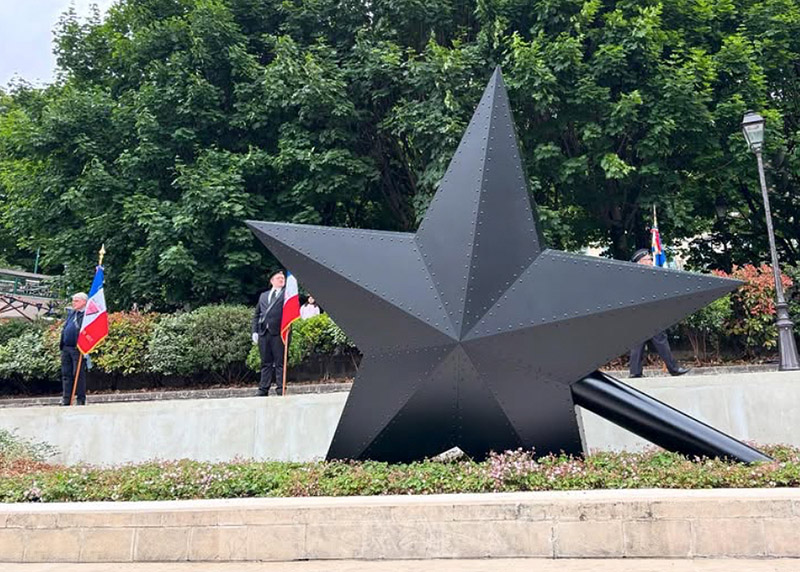
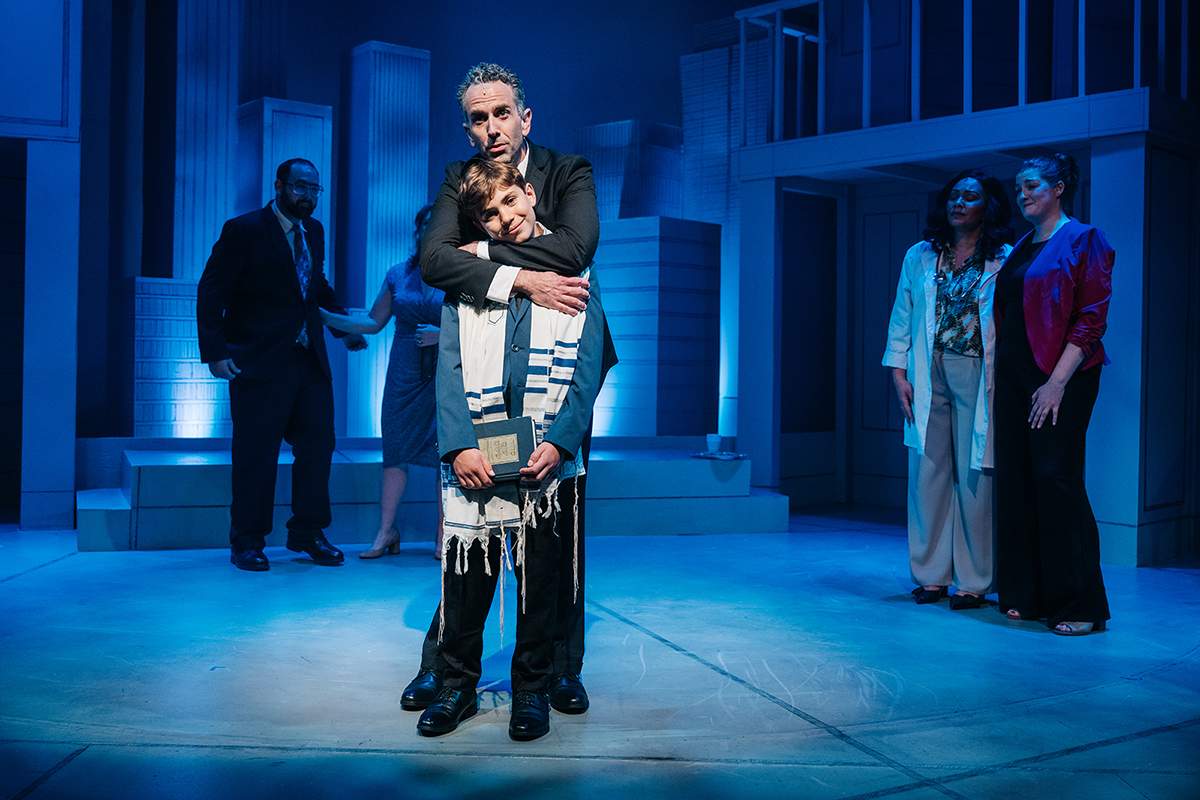













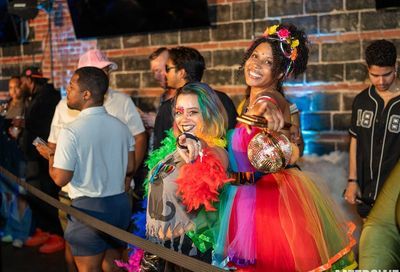

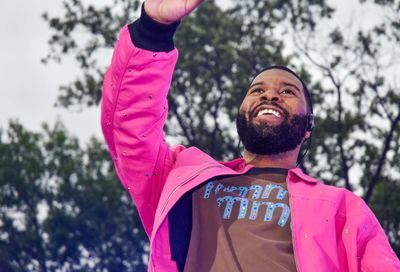
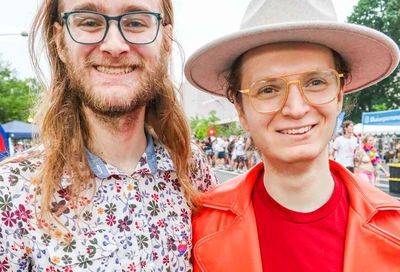
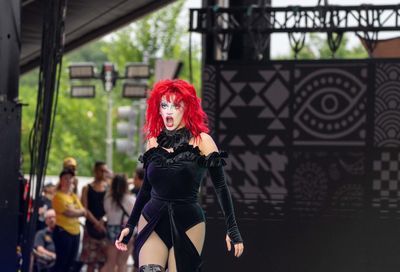

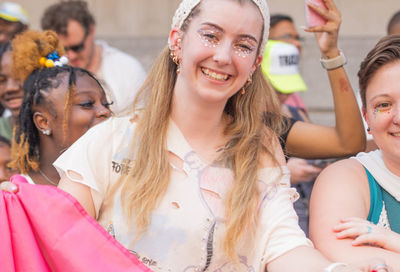
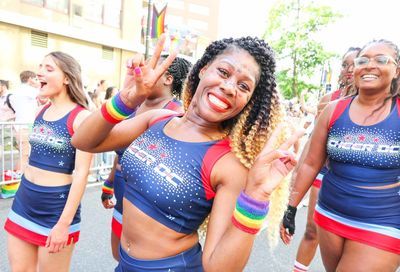
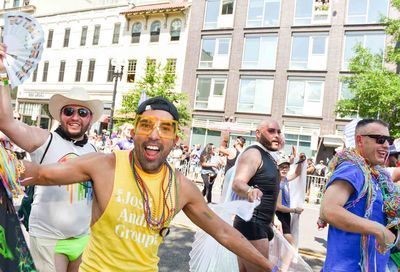
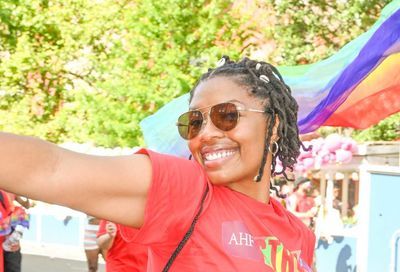
You must be logged in to post a comment.